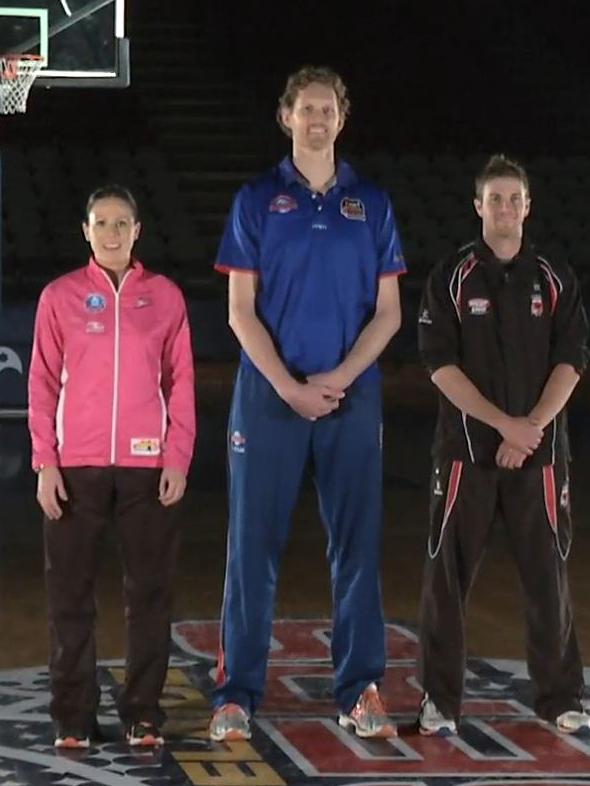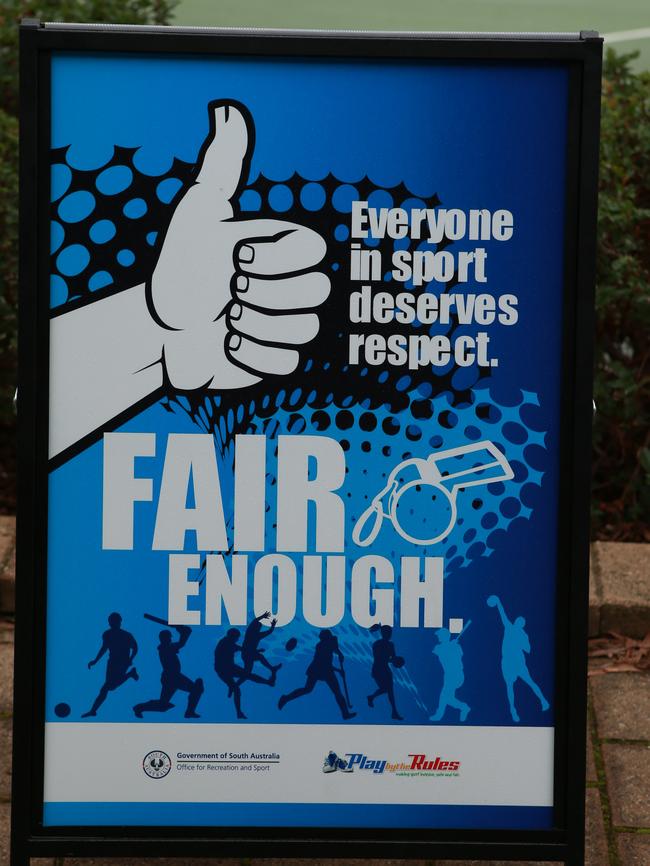South Australian sport stars join Fair Enough campaign to stamp out abuse from parents directed at children and officials
PARENTS who abuse officials and children from the sidelines are in the firing line as the State Goverment, sporting codes and elite athletes unite to stamp out the ugly side of junior sport.
PARENTS who abuse officials and children from the sidelines are in the firing line as the State Goverment, sporting codes and elite athletes unite to stamp out the ugly side of junior sport.
They are spearheading a new Fair Enough campaign — involving educational videos and signs at venues — to change the culture of anger and aggression that is driving children away from competitive sport.
Former Thunderbird Natalie von Bertouch, Adelaide 36er Luke Schenscher and Redback cricketer Gary Putland have given their support for the campaign recording a video to remind parents to treat everyone, from umpires to the volunteers, with respect.
The video, in which the sports identities witness first-hand the ugly side of junior sport, will be handed to parents to watch when they sign their children up at sporting clubs.
In the 5-minute video von Bertouch, who is filmed watching a junior match at ETSA stadium, cringes as she hears comments from the stands.
“When we’re playing we’ve got 2 or 3000 people watching us so we don’t actually here those (abusive) comments,” she says in the video.
“When you are here at a junior game you can hear everything that the parents are saying on court and that’s really hard emotionally for those kids to deal with that.”
Under the Fair Enough campaign sporting clubs have started erecting warning signs at junior competitions to remind parents that their bad behaviour will not be tolerated.

The signs, tailored for specific sports, include messages such as: “These are children, this is a game, the coaches volunteer, the referees are human this is not the A-League or the World Cup”.
The signs have been rolled out to SA sporting clubs since mid-May.
Similar signs have been used in the US for a number of years Sports Minister Leon Bignell said we want everyone to be out on the field doing the right thing.
“I have a 16-year-old son so I’ve been around kids sport for the last 11 years and by and large everyone does the right thing but it’s really uncomfortable when you get an ugly parent out there saying the wrong things, putting pressure on the kids,” he said.
“The kids get embarrassed. They can hear their mum or their dad saying inappropriate things.
“(Then) kids don’t necessarily want to participate in sport, not because they don’t love their sport but because of their parents.”
A study by Flinders University researcher Sam Elliott last year into the “ugly parent syndrome” revealed that the behaviour caused children to lose motivation, which could result in quitting sport.
Netball SA chief executive Ben Scales said this campaign provided the opportunity to educate players, coaches, parents and supporters to show respect for the game and those involved.
“We’re in the process of rolling out the campaign across the state through education sessions and the distribution of campaign collateral and have received some really positive feedback about the campaign,’’ he said.
At Netball SA Stadium, yesterday, more than 5000 players and parents were greeted at the entry with a sign reminding them “this is not the ANZ Championships”.
Craig and Natasha Watts were among the crowd to watch their daughter Ella, 10, play for the Contax.
As a former professional baseballer who played for the LA Dodgers, Craig said he had seen a lot of sledging in his time but there was no place for it in junior sport.
“It’s very important that these guys are encouraged both when they are doing well or when they make mistakes there’s no point in being negative,” he said.
“I have witnessed it, when the parents first start watching they don’t know how to react in their first year or two. It’s that competitive nature,” he said.

“The definitely would feel embarrassed. I’ve seen more in the carparks where parents haul up their children next to the cars and say things.
“Even behind closed doors not right, you need to show kids as much support as possible.”
